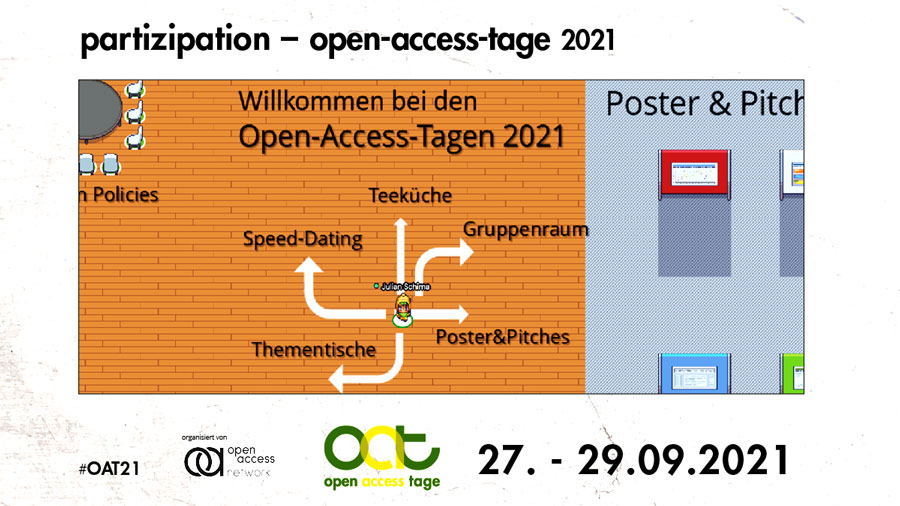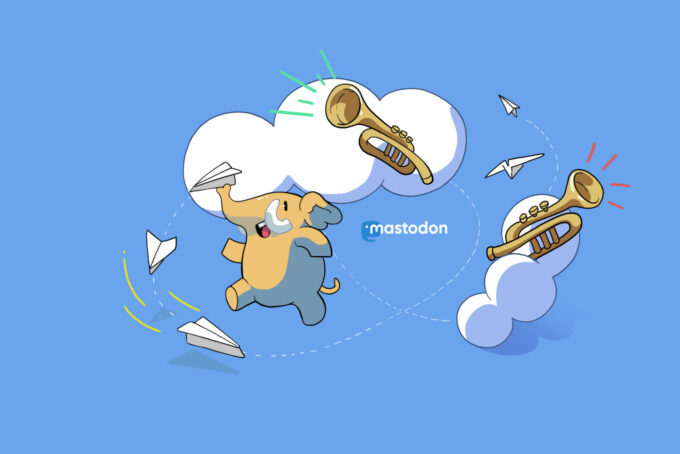
Open Access Days 2021: Highlights and Most Interesting Topics
The theme of “Participation” was the unifying element of the Open Access Days 2021. Funding models, Creative Commons licences or community building in specialist repositories are a few of the topics that the participants found the most interesting.
by Juliane Finger, Jochen Schirrwagen, Kristin Biesenbender, Ralf Flohr, Jens Lazarus, Claudia Sittner and Julia Wermelinger
Completely online again, the Open Access Days (German) took place from 27-29 September 2021. In ten sessions, five workshops, two keynotes and during a “Poster & Pitches” session, around 400 participants from Germany, Austria and Switzerland discussed online how the OA landscape has changed over the past year, how non-commercial publication initiatives and society in general can participate, and how to realise that less privileged countries also actively participate in the global academic discourse.
The formats of the Open Access Days organised by the open-access.network were as diverse as the topics, but in 2021 they were much more experienced on the digital event stage: On Zoom, miro and in gather.town there were speed-dating, coffee talk, round table discussions, Q&A sessions, a digital games evening, and the great relaunch party for the new open-access.network website (formerly Open-Access.net).
The Open Access Days see themselves as a central platform for the German-speaking Open Access and Open Science community. They are aimed at all those who would like to explore the diverse facets of scholarly publishing, such as employees of libraries and other institutions of the academic infrastructure and of publishing houses, as well as scientists and members of academic administrations.
We have asks some Open Access enthusiasts to recall their highlights, trends and the most interesting topics of the Open Access Days 2021 from their point of view.
Open Access Funding Models
Bxy Juliane Finger
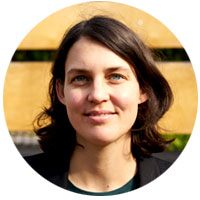
Open Access for monographs is a topic which, in comparison to Open Access for journals, has only recently begun to attract attention. Now an entire session at the Open Access Days was dedicated to the issue of the financing of Open Access monographs. Two presentations explored the topic from very different perspectives.
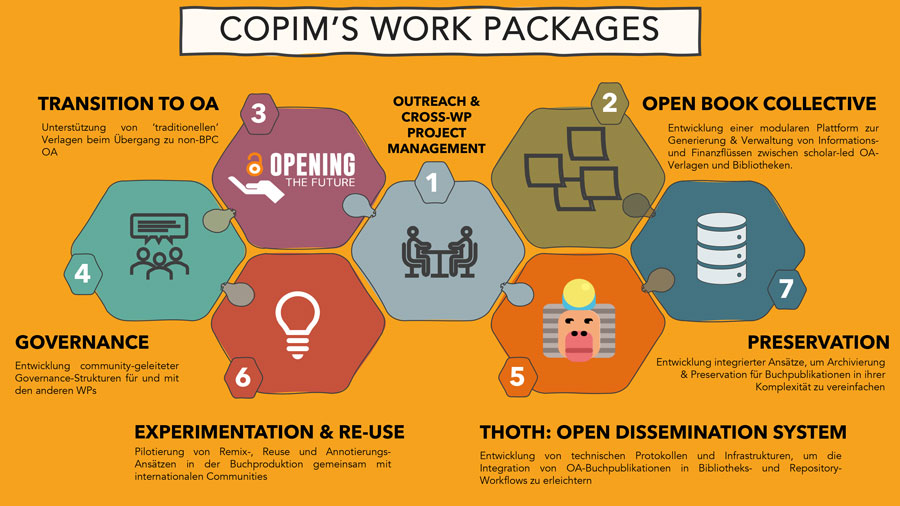
Copim’s Work Packages from the Scaling small for a charitable scholar-led OA eco-system for book publications (German)
Tobias Steiner introduced the project Community-led Open Publication Infrastructures for Monographs (COPIM). German: COPIM is an international joint project which develops, in several work packages, an entire “ecosystem” for non-commercial publication initiatives for Open Access monographs. The project still has eighteen months to run and several points, such as the question of governance, still need to be clarified.
In the second presentation, Eloísa Deola Schennerlein reported on her practical experiences of the publication funds for Open Access monographs (German) at SLUB Dresden. German: SLUB advocates more transparency on the part of the publishing houses. It only supports Open Access monographs if the publishing houses are willing to disclose their cost structures.
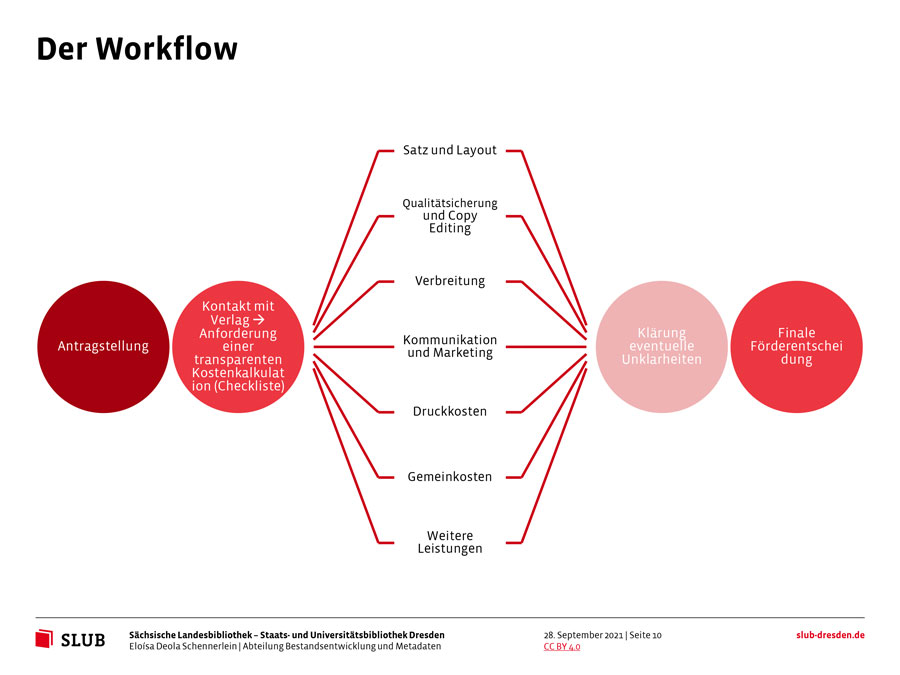
Workflow of the Funding of OA monographs – experiences at the SLUB Dresden (German)
I found it positive that these funding requirements were widely accepted by the authors concerned. SLUB too is still in a pilot phase with its support fund. For all those who are involved with the funding of Open Access monographs, it will be interesting to see how the many open questions discussed in the session, will be solved.
- Steiner, Tobias. (2021, September 28). Scaling small for a charitable scholar-led OA eco-system for book publications. Open Access Days 2021 (OATage21), online. Zenodo (German).
- Deola Schennerlein, Eloísa. (2021, September 28). Funding of OA monographs – experiences at the SLUB Dresden. Zenodo (German).
Open Access as a Publication Model: Influencing Factors
and Interactions
By Jochen Schirrwagen
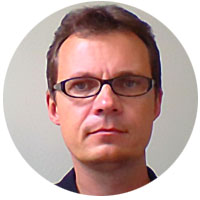
In the session on “Publication evaluations around Open Access” (German, three bibliometric studies from quantitative science research projects were presented, which, when considered together, once again make clear how complex structural, economic and science policy factors and interactions are on publication behaviour and on the impact of scientific publications.
Against the background of the contract cancellations with Elsevier in the DEAL project in Germany, Nicholas Fraser presented the effects of restricted access to Elsevier journals on the publishing and citation behaviour of authors in his contribution. German: It was found that fewer authors have published in Elsevier journals since then, but that access to the publications has presumably been realised via shadow libraries as a substitute.
In her contribution, Fakhri Momeni presented the extent to which limitations inherent in common publication models (gold OA, hybrid, closed) have an influence on the scientific success of authors worldwide. German: In addition to subject- and gender-specific factors, the economic situation also played a role. For example, authors from countries with low income levels are enabled to publish in gold Open Access journals by publishers such as Springer Nature granting so-called waiver policies. However, the study showed that this measure alone cannot adequately solve the challenge of equal publication conditions for all authors.
The fact that the implementation of the Open Access transformation at universities in Germany is taking place to varying degrees was the subject of the third contribution by Nils Taubert. Within the framework of the OAUNI project, research is being conducted here into corresponding factors and patterns that should explain the differences in Open Access profiles at universities in Germany.
Standards for Diamond Open Access Journals
By Kristin Biesenbender
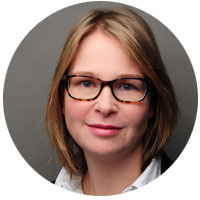
“Collaboratively we can financially sustain and build capacity for a healthier and thriving, diverse, connected, scholar-led publishing ecosystem”, were the closing words spoken by Vanessa Proudman during her presentation at the Open Access Days 2021. German: The topic was how to make Diamond Open Access journals more resilient and fit for the future. Staffing and financial capacities need to be developed for this to occur. It is essential that joint services or infrastructures are developed that benefit many. Standards are also required, in order to raise the visibility and quality of Diamond Open Access journals.
In their presentation (German) Isabella Meinecke and Tim Boxhammer declare that formal quality standards should be maintained, i.e. information on the concept of the journal, licence requirements or also persistent identifiers should be provided. German: Digital standards such as an HTML display of articles, metrics or the display of quotations are important. Diamond Open Access journals should also meet Open Science standards. These include giving details of submission and publication data, the availability of research data and the disclosure of conflicts of interest or funding. Other standards include a modern article template, indexing and long-term archiving.
Standards are not an end in themselves, however, but have practical benefits, Xenia van Edig emphasises in her presentation. German: It is important to support good and open scholarship, to create advantages for dissemination and re-use as well as simplifications for authors. Publishers and editors are therefore requested to take formal quality standards into consideration and implement them for Diamond Open Access journals.
Creative Commons Licences: German-language FAQs Online
By Ralf Flohr

The workshop carried out by Christoph Bruch (Helmholtz Association) and Fabian Rack (FIZ Karlsruhe) presented and discussed the newly designed website (German) of the German-language FAQs on Creative Commons licences. FAQs on CC licences previously only existed in English and French. The German-language FAQs are not merely a translation, however, because they also consider special issues adapted to the German legal system. The FAQs were compiled by members of the German Creative Commons group. The first version went online in June 2021 with ca. 130 questions and answers. The FAQs are a dynamic format which can be expanded and continually developed in the future.
The German FAQs thereby fulfil an important gap, because although the CC licences are widely used when publishing in Open Access, authors are not always sufficiently informed about the way they function..
The workshop discussion explored the most varied aspects of CC licences – such as questions on the existence of several different licence types in a text, to the relationship of quotation law and CC licence as well as the processing and sharing of chapters of a CC-licenced book. The group of participants also made suggestions about the further development of the format of the FAQs, e.g. with fact sheets in which the different perspectives of researchers and editors are taken into consideration.
Community-specific Open Access services: Blogs and OLECON
By Jens Lazarus
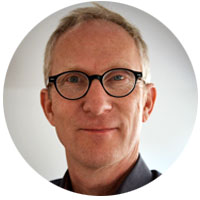
The world of academic publications is dominated by publishing houses. For a long time, specialist journals were closed events; for the annual subscription costs, one could also buy a middle-class car in individual cases. The massive transformation to Open Access is changing the situation. Publishing houses have adjusted their business models; however their services during the publication process seem to be indispensable. I was interested to explore alternative projects on publisher-independent services. In the session “Community-specific OA services” at the Open Access Days 2021, two examples showed that the freedom gained through scholar-led publication opens up new possibilities and new ideas for application.
For me the approach of quality-assured multi-author blogs (QMABs) in particular was new. During the session, two alternative routes to publication from the otherwise not particularly OA-savvy field of law were presented: the Verfassungsblog (a constitutional blog – a journalistic and academic forum of debate on topical events and developments in constitutional law and politics in Germany, the emerging common European constitutional space and beyond) and the Völkerrechtsblog (an international law and legal thought blog – an academic blog on all matters of international public law and international legal thought ) Both blogs address the specialist community and promote scientific discourse away from the usual publication paths. The quality assurance of the articles is central for their acceptance – this is realised via the peer review procedure. The open accessibility and format enable an important dissemination beyond academia, for example into the political sphere. The wide coverage and the usage figures prove the success of the QMABs.
Closer to the familiar publication format is the project presented by Juliane Finger (ZBW). German: , which is being realised within the framework of the ZBW’s special funding programme “Novel paths of digital literature provision”: Open Library Economics (OLECON) is a publisher-independent platform for Open Access journals in business and economics. OLECON is not limited to the technical framework that includes hosting in partnership with TIB Hannover; it also incorporates consulting services and the funding to convert journals to a publication model without publication fees (Diamant Open Access), thereby removing a major obstacle to Open Access publishing in the economic sciences. Financing will be organised via a consortium of different libraries in the medium term. This concept creates an alternative to commercial publishing houses for economic sciences journals and enables a direct science-driven approach.
Community-building in Specialist Repositories: Stakeholders
and Instruments
By Claudia Sittner
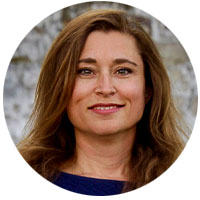
The workshop was initiated by Dietmar Kammerer and Kai Matuszkiewicz from the University of Marburg, who are working on Media/Rep/, an Open Access repository for media studies publications. They stress that when Open Access repositories are discussed, technical aspects tend to dominate the conversation, whereas the community idea is forgotten. “Repositories are more than a container,” says Kammerer. In their workshop “Community-building in Specialist Repositories”, they brought this aspect to the fore. Their key question: How can stakeholders be integrated into professional repositories in the course of community building in such a way that they set new impulses?
Media/Rep/ is active on twitter (mostly German) and plans to set up accounts on Facebook and Instagram, to reach students in particular. However they also regard their specialist repository as a tool for researchers, who could work with Media/Rep/’s (meta)data. After an impulse talk by the two on Media/Rep/, all workshop participants worked together on a miro board to identify the stakeholders for community building.
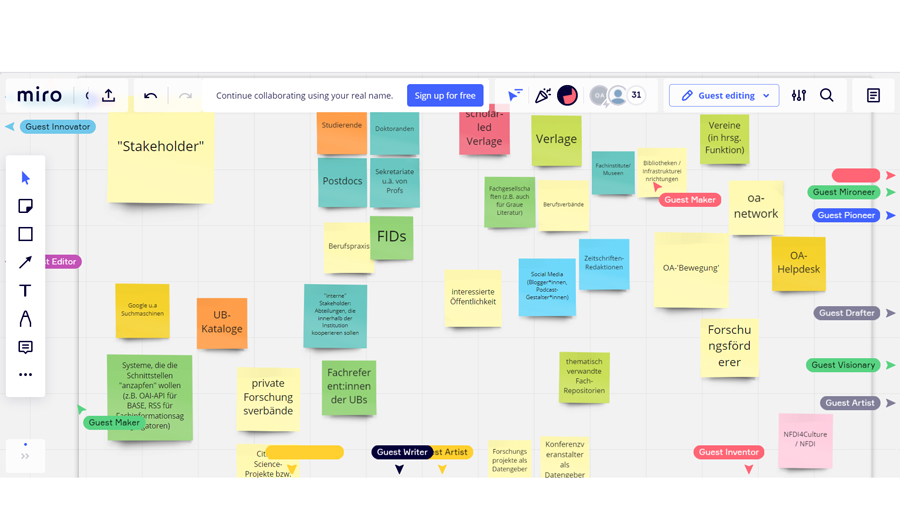
miro Board – Stakeholders for community building – Open-Access-Days©
Leading questions were: What forms of participation could and should specialist repositories offer for the different stakeholders? Who needs to be addressed in this context and how? How can these stakeholders be motivated to take part? As well as the expected groups of people such as researchers, students or postdocs, there were also surprises such as secretariats, conference organisers or even associations, to name just a few examples.
During the discussion, Matthias Fuchs from the portal for the mobility and transportation research FID move (German) emphasised that repositories act above all as service providers and in an advisory function. If more were involved, then this would primarily be a (personnel) capacity issue. Anke Butz of peDOCS, the specialist repository for educational science, pointed out that repositories do not take on the tasks of publishing companies but are responsible for the technical components. Instruments for community-building were then gathered on the second miro board:
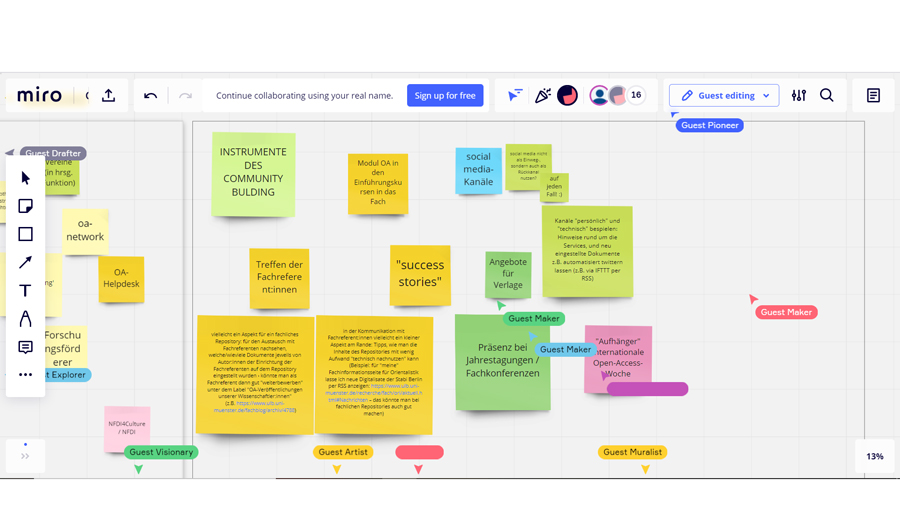
miro Board – Instruments of community building, Open-Access-Days©
Subject specialists, personal success stories and curated content collections from OA pioneers were identified here as Open Access ambassadors for the specialist repository communities.
Q&A with Open Access Luminary Peter Suber
By Julia Wermelinger
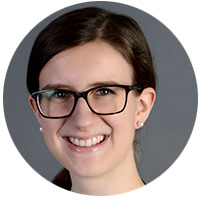
My personal highlight of the Open Access Days 2021 was the Q&A session with Peter Suber. Peter Suber is a luminary of the Open Access movement: Co-founder of the Budapest Open Access Initiative, author of a fundamental text on OA and, not least, active contributor in the debates surrounding Open Access on social media, for example on Twitter.
With his clear and concise answers to the numerous questions from the OA community, he reminded us of the fundamentals of the Open Access aspirations by emphasising the significance of the so-called green path the secondary publication in public repositories. He was sceptical about the transformation of classic publishing houses and journals, and does not see any change happening as long as large APC sums are flowing. It is desirable to increase the OA volume in publishing. Although it is worth striving for an increase in OA capacity in the publishing industry, deploying Big Deals and Read & Publish contracts as well for example, this should not be achieved at any price.
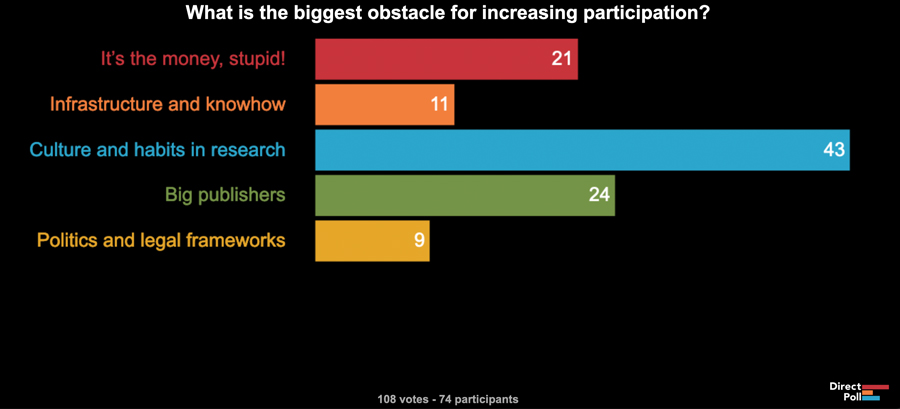
Publikumsvoting in der Q&A-Session
A audience vote revealed that a majority of those present believe that the aims of the Budapest Initiative can be achieved in the future. The biggest obstacle to OA and participation in it was identified by the audience as the culture and habit within the sciences. Suber said that one could certainly work on this. This transformation is underway, thanks to the tireless dedication of all those involved; not only, but especially, the libraries.
More about the Open Access Days
- Hashtag: #OAT21
- Website Open Access Days (German)
- Agenda of the Open Access Days (German)
- The Open Access Days on Twitter
- Presentations of the Open Access Days 2021
- Posters of the Open Access Days 2021
- Open Access Days 2020: Highlights & Tips
- Open Access Days 2019: Business models and their financial impacts for open access transformation
Further reading for Open Access enthusiasts
- Third-Party Material in Open Access Monographs: How Far-Reaching is the Creative Commons Licence Really?
- Open Access for Monographs: Small Steps along a difficult Path
- Interview: Open Access Preprints boost Article Citations and Mentions
- One Year of Open Access: The journals Wirtschaftsdienst and Intereconomics Take Stock
- InnOAccess-Workshops: Publishing Free-of-Charge Open Access Journals Sustainably
- Open Access: AfricArXiv facilitates knowledge exchange between Africa and Europe
About the authors:
Juliane Finger is Open Access Officer at the ZBW – Leibniz Information Centre for Economics. There she supervises the pilot project Open Library Economics, a non-commercial platform for Diamond Open Access in economics. The communication scientist and psychologist has already been working on the topics of Open Access and digitisation for several years. She can also be found on ORCID.
Portrait: Juliane Finger©
Jochen Schirrwagen has been working as a project coordination and innovation management officer at Bielefeld University Library since 2017. Among other things, he is involved in the Open Science Network at Bielefeld University. He can also be found on ORCID.
Portrait: Jochen Schirrwagen©
Kristin Biesenbender is a scientific editor of Wirtschaftsdienst at ZBW – Leibniz Information Centre for Economics and PhD Candidate at the University Hamburg in the field of sociology, especially science studies.
Portrait: Kristin Biesenbender©
Ralf Flohr is a scientific employee in the Publication Services Department and Content Manager of EconStor at the ZBW – Leibniz Information Centre for Economics. He can also be found on LinkedIn.
Portrait: Ralf Flohr©
Jens Lazarus is head of inventory and licence management at the ZBW – Leibniz Information Centre for Economics, which also includes the consortial services of the ZBW. In this function he is also active in the GASCO – German, Austrian and Swiss Consortia Organisation and in other committees.
Portrait: Jens Lazarus©
Claudia Sittner studied journalism and languages in Hamburg and London. She was a long time lecturer at the ZBW publication Wirtschaftsdienst – a journal for economic policy, and is now the managing editor of the blog ZBW MediaTalk. She is also a freelance travel blogger (German), speaker and author. She can also be found on LinkedIn, Twitter and Xing.
Portrait: Claudia Sittner©
Julia Wermelinger is a research assistant in the Digital Services and Open Science Department of the University Library of Bern. She is primarily concerned with issues relating to Open Access and research information. She can also be found on LinkedIn, ORCID and Twitter.
Portrait: Julia Wermelinger©
View Comments
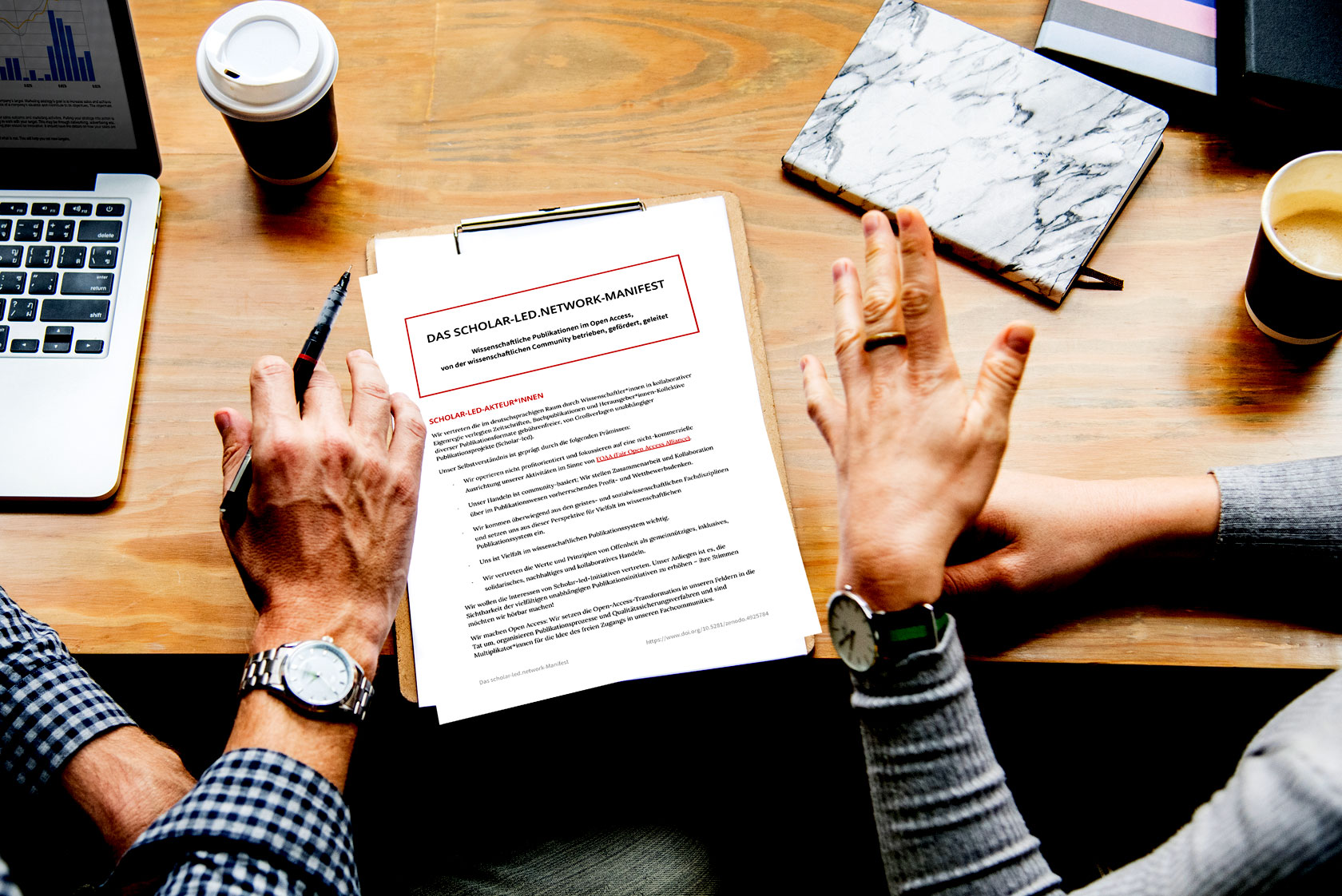
scholar-led.network: New Support for Scientific Publication Projects
Away from profit-oriented large publishing houses and commercial interests, the...

